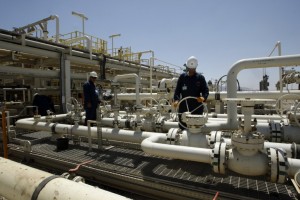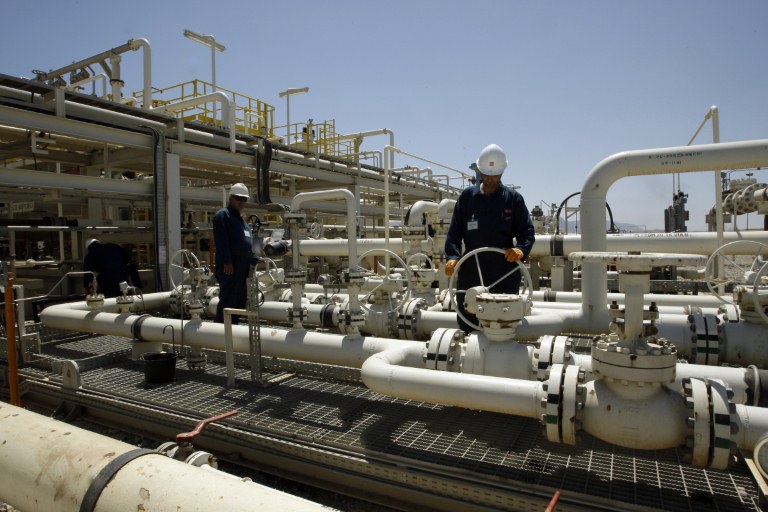
AFP PHOTO
Pull out of the semi-autonomous Kurdish region, or lose all contracts with the federal oil ministry. This is the message Baghdad has presented to French oil company Total.
AFP reported Deputy Prime Minister Hussein al-Shahristani saying, “Total announced that it signed contracts in Kurdistan and, because of that, the ministry of oil told them that they had breached Iraqi law. If it ends its contract with Kurdistan, it can proceed with the Halfaya field.”
Halfaya is an oil field in southern Iraq, near the Iranian border. As part of a consortium led by PetroChina, Total penned a deal for Halfaya with the Iraqi Ministry of Oil at the end of 2009, with production set to begin in 2012.
In a June press release this year, Total President Yves-Louis Darricarrère stated, “this first step of production from Halfaya marks a landmark milestone in the development of the field. Total remains committed to accompanying the development of the Iraqi oil industry and is looking at engaging in other projects.”
But it seems Darricarrère looked too far north for Baghdad’s liking. Total’s foray into Iraqi Kurdistan follows the lead of other industry giants. Of the world’s top nine oil companies, three have recently signed contracts within the Kurdish region.
Gazprom, the Russian mega-company that is partly overseen by the government, signed a deal for Kurdish oil at the beginning of August.
Exxon Mobile, who is the world number four, set off a firestorm in June when it signed its exploratory contract. The Iraqi Prime Minister, Nouri al-Maliki, warned that the oil deal could lead to war and the disintegration of the current Iraqi state.
Finally, Chevron, who at ninth in the world still produces 3.5 billion barrels per day, signed its own contract on the heels of the Exxon deal. This deal led to Chevron being banished from doing business anywhere else in Iraq.
“All of the companies knew that they were walking into a political minefield,” said Michael Rubin, a former Pentagon official. “They have staffs of thousands, and consultants on the ground. They cannot plead ignorance that Kurdish maps did not mark disputed territories.”
While the oil businesses were making calculated decisions, they may have misstepped in some of those calculations. “The oil companies may have figured that they could get away with it,” added Rubin. “Indeed, Exxon appears to have been egged on by the former US Ambassador to Iraq, Zalmay Khalilzhad.”
Exxon refused to provide the Daily News Egypt with a comment on this story.
After the inflammatory comments Al-Maliki had for Exxon, Baghdad took a more sober, bus similarly harsh approach to the Chevron signing. They issued a statement saying they were “surprised of the attitude of Chevron,” and disqualified the American company from signing any new contracts with the federal oil ministry.
The ministry is particularly angered about deals with the Kurdish region because they argue that Kurdish groups outside of Iraq will benefit from the deals at the expense of the Iraqi people. In the statement condemning the Chevorn deal, the ministry wrote, “the whole world knows that the oil produced in Kurdistan region does not go directly to serve the Iraqi people’s interests, but is smuggled in unknown quantities to nearby countries like Iran and Turkey by organised smuggling networks.”
Total released a statement saying they bought a 35 percent interest in oil fields at Harir and Safen, which totals over 1,000 square kilometers. The statement also frames their oil purchase as a productive step toward Iraqi development, saying, “Total confirms its commitment to contribute to the development of the oil Industry in Iraq and is looking for new opportunities.”
In addition to oil exports, the Kuridsh Regional Government has been at odds with the Iraqi Government over territorial disputes. One of these areas, Kirkuk, was the site of a visit by Ahmet Davutoglu, the Turkish Foreign Minister, who went to Kirkuk as part of a visit to Iraqi Kurdistan. AFP called the visit a “new low” for the relationship between the two governing bodies.
